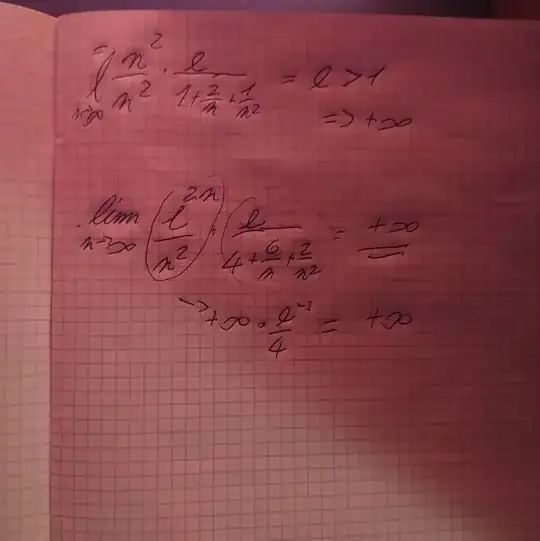Evaluate $\lim_{n\to\infty}\frac{e^{n^{2}}}{(2n)!}$.
I used the ratio test to calculate this limit, and I got here:
$\lim_{n\to\infty}\frac{e^{2n}}{n^2}\frac{e}{4+6/n+2/n^2}$.
For the first fraction, I applied the ratio test again and got +inf.
I also attach pictures with a more detailed solution. I would like to ask if the procedure and result are correct.

